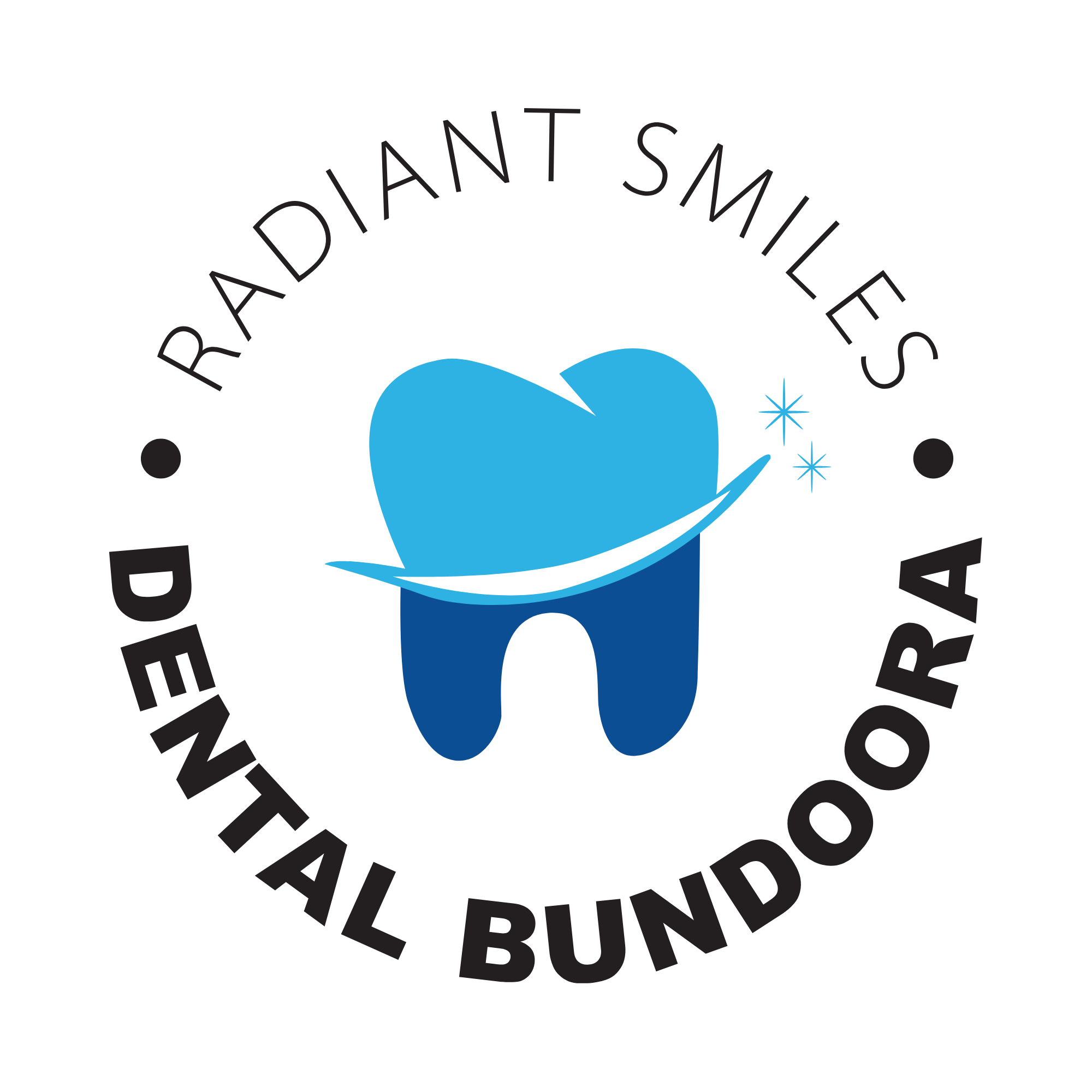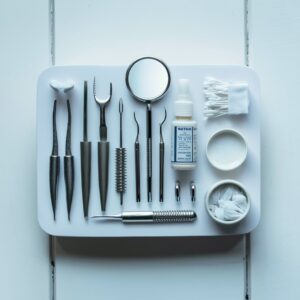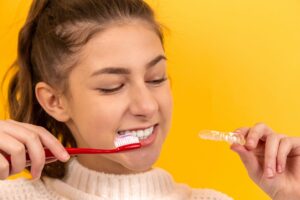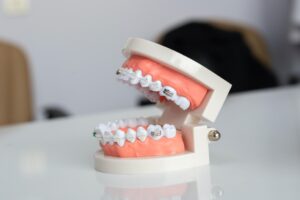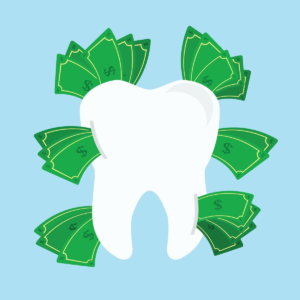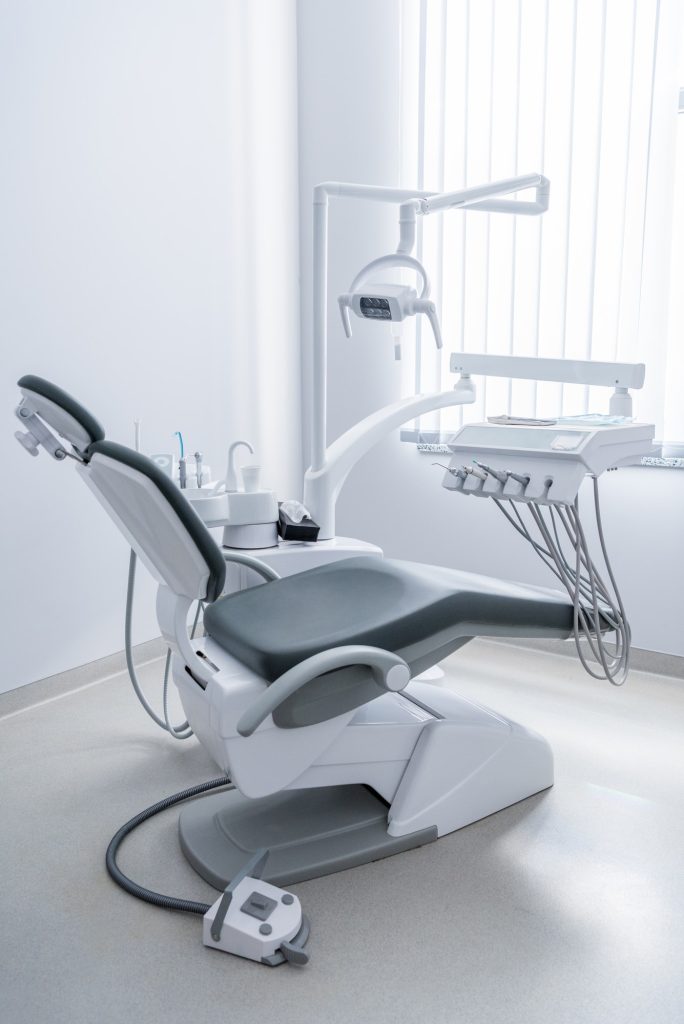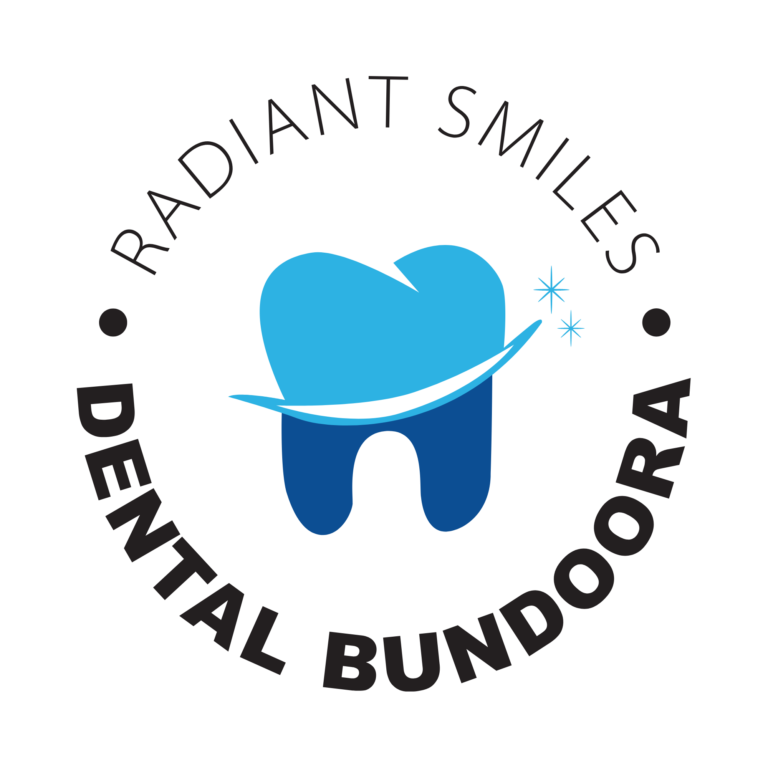[et_pb_section fb_built=”1″ _builder_version=”4.9.4″ _module_preset=”default”][et_pb_row _builder_version=”4.9.4″ _module_preset=”default”][et_pb_column type=”4_4″ _builder_version=”4.9.4″ _module_preset=”default”][et_pb_text _builder_version=”4.9.4″ _module_preset=”default” hover_enabled=”0″ sticky_enabled=”0″]
Wisdom teeth, or third molars, can cause problems for many people when they become impacted, and in most cases, they need to be extracted. Wisdom teeth removal is a common dental treatment, especially for young adults between 17 and 25.
Our surgical team at Radiant Smiles Dental Group can discuss your treatment with you before your wisdom teeth extraction, so you know what to expect afterwards. In addition to a prescription for pain medication and antibiotics, you will receive other post-operative instructions, including what to eat after wisdom teeth removal.
Wisdom Teeth Removal
Getting your wisdom teeth removed is a straightforward dental procedure performed under a local anaesthetic. For complex extraction that requires an incision made into the gums, you require sedation or general anaesthesia.
Your dentist may divide the tooth into sections for easier removal. Then, they use a dental elevator to loosen the tooth in the socket and forceps to remove the tooth and root.
Once your wisdom teeth removal is complete, you begin your recovery. You can support your recovery with a nutrient-dense soft-food diet for the first 7-10 days following surgery.
Nutrition for Healing
The first 24-48 hours after getting your wisdom teeth removed, you should limit yourself to a liquid diet of juice, smoothies, and room temperature soups or broths.
 After the wisdom tooth extraction, you need to eat and drink enough protein and calories to repair the affected tissues. Vitamins A and C help your immune system function, which you need to prevent infection. Vitamin A also contributes to healing the lining of your mouth and bone. Vitamin C helps with collagen production, a component of the connective tissues around the surgical site.
After the wisdom tooth extraction, you need to eat and drink enough protein and calories to repair the affected tissues. Vitamins A and C help your immune system function, which you need to prevent infection. Vitamin A also contributes to healing the lining of your mouth and bone. Vitamin C helps with collagen production, a component of the connective tissues around the surgical site.
Calcium is an essential mineral in bone formation. Eating adequate levels of iron ensures your healing tissues get enough oxygen. Zinc and copper support the immune system and protect the integrity of the skin in your mouth.
Eating the recommended amounts of various nutrients will aid healing after wisdom teeth removal.
What to Eat After Wisdom Teeth Removal?
If you wonder what to eat after wisdom teeth removal, choosing foods that speed up your healing and recovery is essential. Learn which foods provide the nutrients you need.
Foods to eat for vitamins
Eat mashed or pureed seedless fruits and vegetables to get the necessary vitamins and minerals for healing after removing your wisdom teeth. Most root vegetables like potatoes, sweet potatoes, carrots, parsnips, turnips, and swede are easy to mash.
You can also puree cauliflower, broccoli, and peas. Avocados, bananas, pears, peaches, and apples can also be pureed.
Foods to eat for minerals
Dairy products provide protein, vitamin A, and several minerals. Cottage cheese, soft cheese, milk, yoghurt, and ice cream are good options.
Milkshakes and ice cream help reduce swelling, and you can add powdered protein for an added punch of healing power. Use a spoon instead of a straw, so you don’t dislodge your blood clot and end up with a painful secondary condition called dry socket.
Smoothies are perfect for pureeing vegetables like spinach, which is high in calcium and iron, with fruit, dairy products like yoghurt, and protein powder. Adding pineapple to your smoothie provides bromelain, which helps to reduce pain and swelling.
Foods to eat for protein
Pureed soups like butternut pumpkin soup or gazpacho offer a variety of nutrients, including vitamin C and iron. Mashed beans, legumes, and eggs provide plenty of protein, minerals, and vitamins.
Jelly and custard are ideal snack foods for a quick mid-afternoon pick-me-up. The soft texture and cool temperature can numb the wound site and reduce swelling.
Try to eat a variety of fruits and vegetables every day to get the micronutrients necessary for healing after getting your wisdom teeth removed.
Foods to Avoid
Some foods can cause pain or a further injury after wisdom teeth removal, including fruit with small seeds that can get stuck in the wound and fruit juice, which is highly acidic. Other foods to avoid eating include:
-
Spicy foods
Spicy foods like chilli can cause pain and irritation to the wisdom teeth removal sockets.
-
Crunchy and crumbly foods
Crackers, chips, and biscuits create crumbs that can get stuck in the wound and slow healing or cause injury to the wound site.
-
Chewy food
To avoid accidentally biting your cheek, avoid chewy food. Chewy food can also lead to dry socket by pulling the clotted blood out of the wound, exposing nerves.
-
Grains and seeds
Quinoa, rice, and other grains and seeds can get caught in the wound and cause irritation and infection.
-
Alcohol
Alcohol can irritate the soft tissue and interact with any pain medication or antibiotics you take. Alcohol can also cause dry mouth, increasing bacterial growth and the risk of infection.
Support Your Wisdom Tooth Recovery
Contact Radiant Smiles Dental Group online or at (03) 9000 0537 and schedule an appointment to learn more about supporting your oral health and what to eat after wisdom teeth removal. We offer family-centred dental care delivered with care and compassion to Bundoora residents. We service patients from Macleod, Kingsbury, and Reservoir and people from the suburbs of Melbourne.
Note: Any surgical or invasive procedure carries risks. Before proceeding, you should seek a second opinion from an appropriately qualified health practitioner.
References
Probiotics diminish the post-operatory pain following mandibular third molar extraction: a randomised double-blind controlled trial (pilot study)
https://pubmed.ncbi.nlm.nih.gov/33124895/
15 Soft Foods to Eat After Having Your Wisdom Teeth Removed
https://www.healthline.com/nutrition/what-to-eat-after-wisdom-teeth-removal
What foods can I eat after wisdom tooth extraction?
https://www.medicalnewstoday.com/articles/321300
Role of nutrition in oral and maxillofacial surgery patients
https://www.ncbi.nlm.nih.gov/pmc/articles/PMC5242071/
Dietary Strategies to Optimize Wound Healing after Periodontal and Dental Implant Surgery: An Evidence-Based Review
https://www.ncbi.nlm.nih.gov/pmc/articles/PMC3681034/
Removing wisdom teeth
https://www.healthdirect.gov.au/surgery/removing-wisdom-teeth
What teeth reveal about the lives of modern humans
https://www.sciencedaily.com/releases/2017/01/170109191553.htm
Why Do We Have Wisdom Teeth?
https://scienceline.org/2007/02/ask-cooper-wisdomteeth/
[/et_pb_text][/et_pb_column][/et_pb_row][/et_pb_section]
 Now
Now